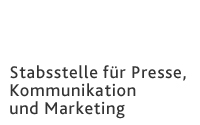Research Magazine "future"
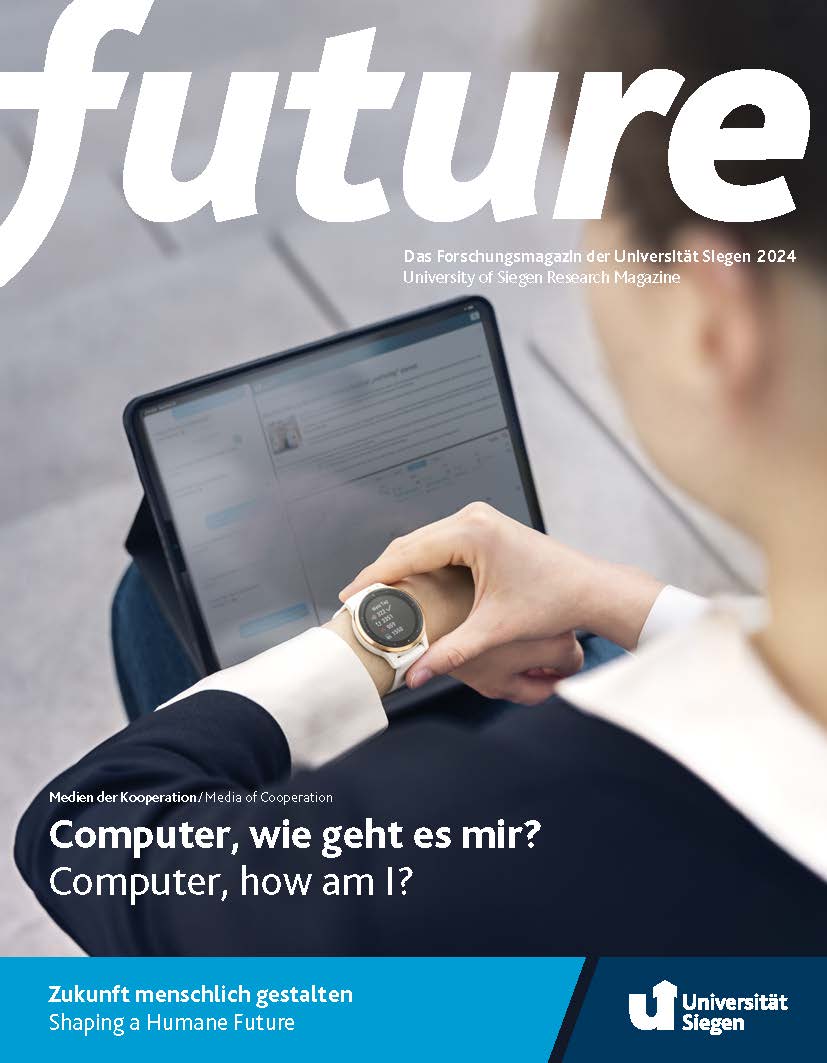 |
Issue 2024Main Topic: Computer, how am I? Media of CooperationWhat do humans do with media, and what do media do with us? Since 2016, the Collaborative Research Center (CRC) Media of Cooperation at the University of Siegen has been examining phenomena in digital society. This future issue focuses on the interplay between human interaction and technology. Topics covered include:
We also present a broad research mix from our faculties, among others:
» Read online |
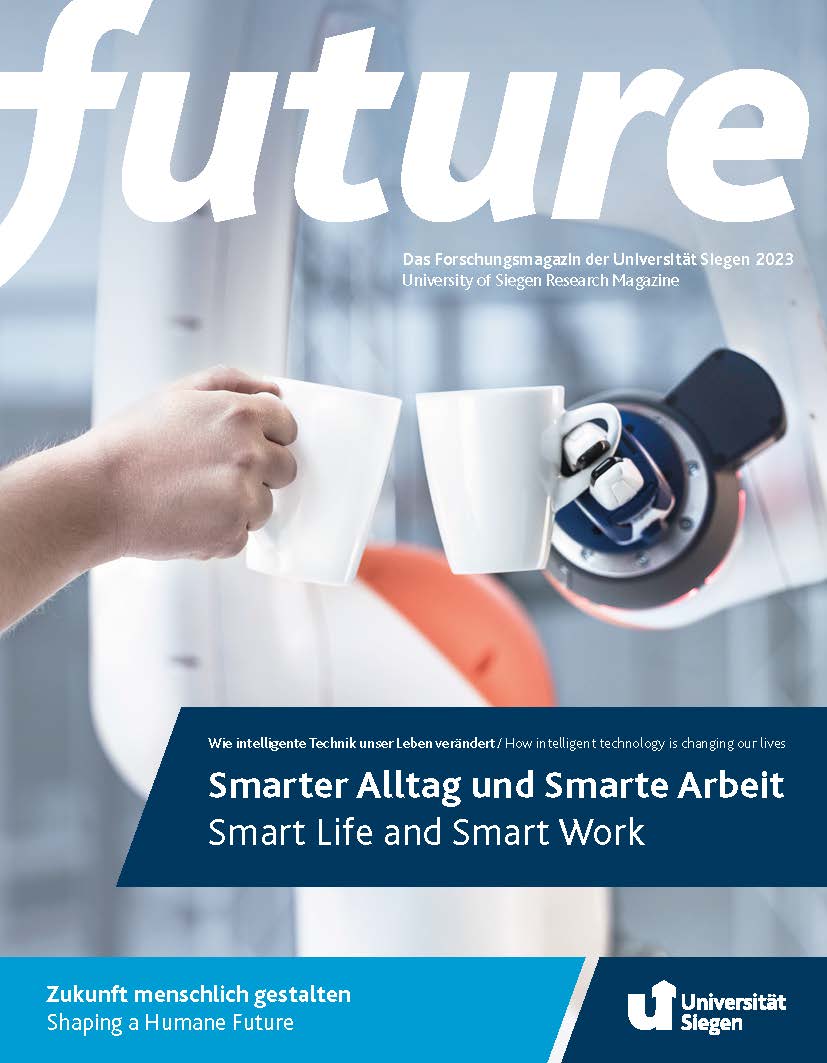 |
Issue 2023Main Topic: Smart Life and Smart WorkWhether hi-tech machines in a factory, chatbots in the office or Alexa in our living room, all these things are "smart" in their own way. In this issue of future, we explore how smart technology is changing our lives. Topics covered include: Selection of topics:
We also present a broad research mix from our faculties, among others:
» Read online |
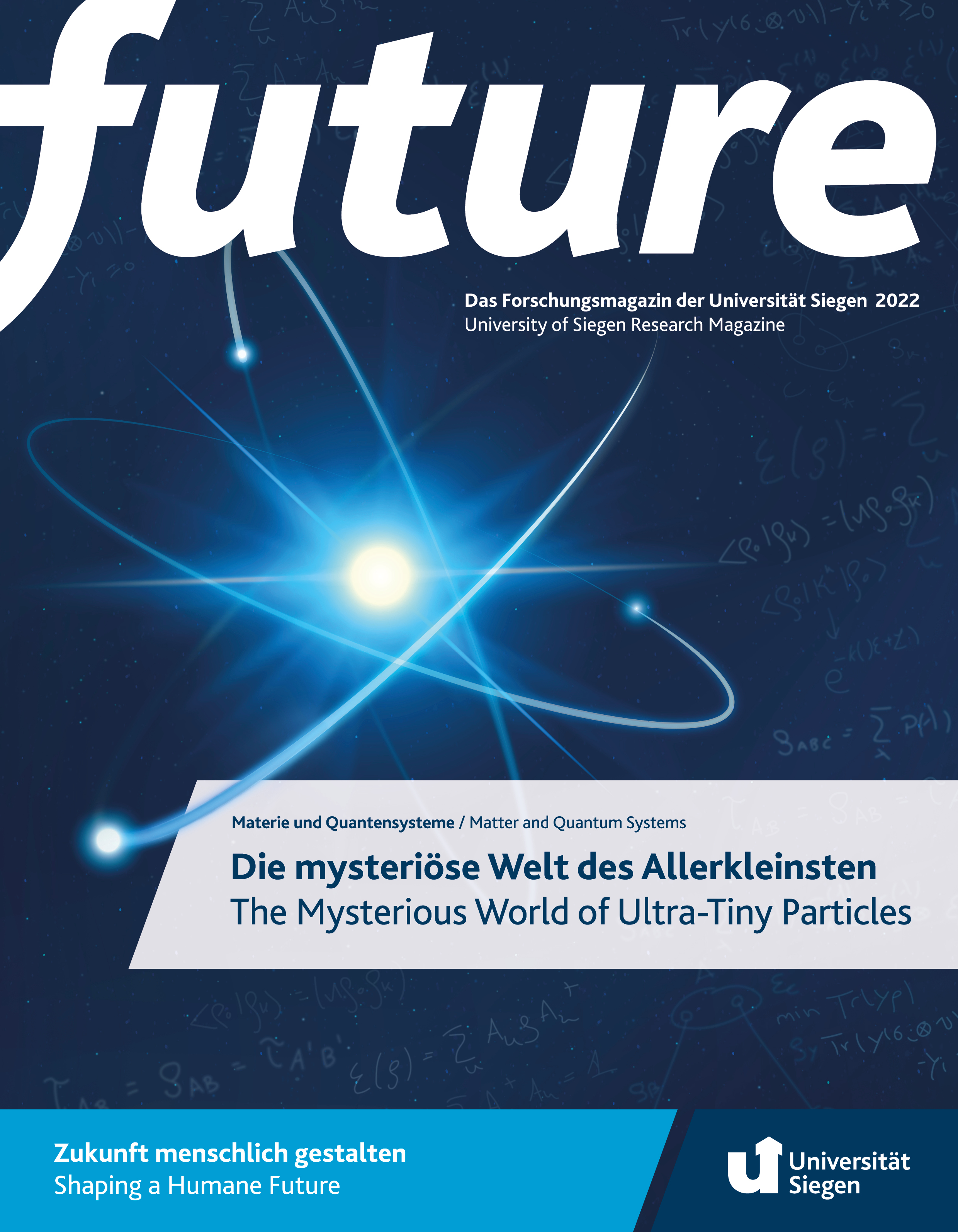 |
Issue 2022Main Topic: Matter and Quantum SystemsThe focus of our new magazine is the latest cutting-edge research in the field of "Matter and Quantum Systems" at the University of Siegen. We provide insights into the mysterious world of ultra-tiny particles. GPS, smartphones, satellites, superconductors, TV sets – without quantum physics, none of these would be possible as we know them today. Selection of topics:
We also present a broad research mix from our faculties, among others:
» Read online |
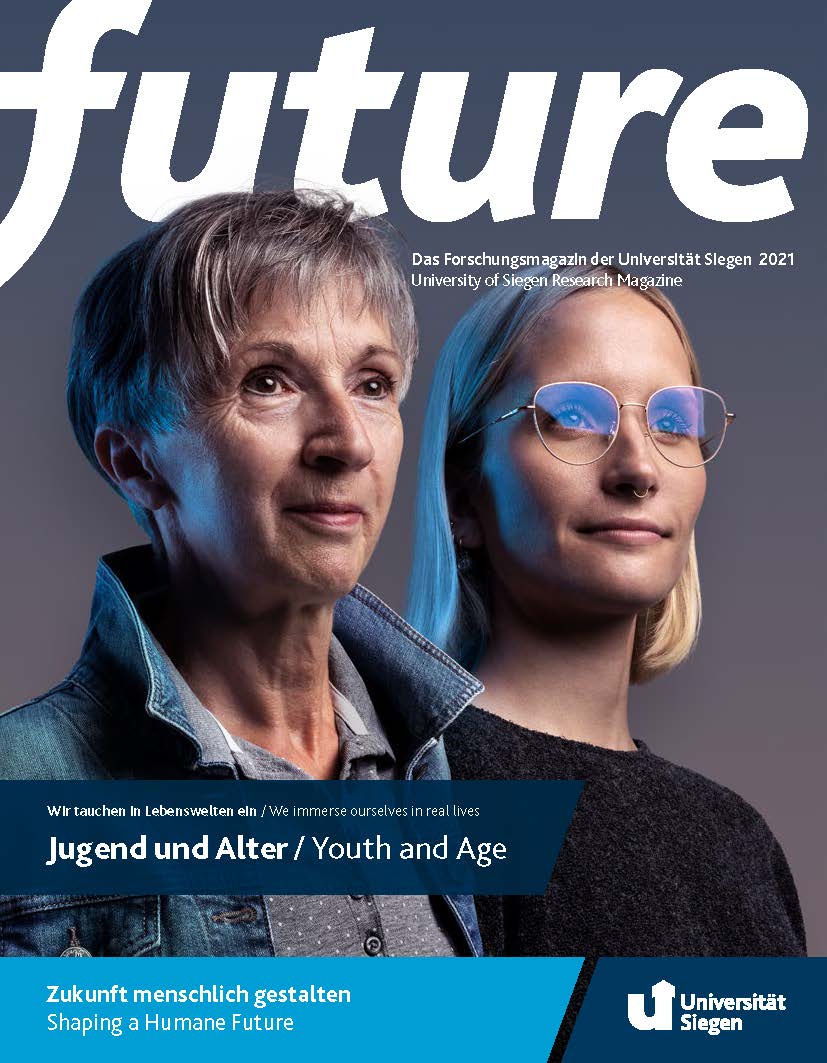 |
Issue 2021Main Topic: Youth and AgeOur researchers immerse themselves in real lives: How can we provide people with dementia with more tailored care, and their carers and doctors with better support (from page 16)? What kind of learning formats can we develop to enable digital participation of older people (from page 23)? How do young people use gangsta rap to form and strengthen their identity (from page 31)? And in what ways do children and youngsters are using local education landscapes (from page 38)? In a debate we discuss, whether intergenerational conflicts are increasing (from page 8). Selection of topics:
» Read online |
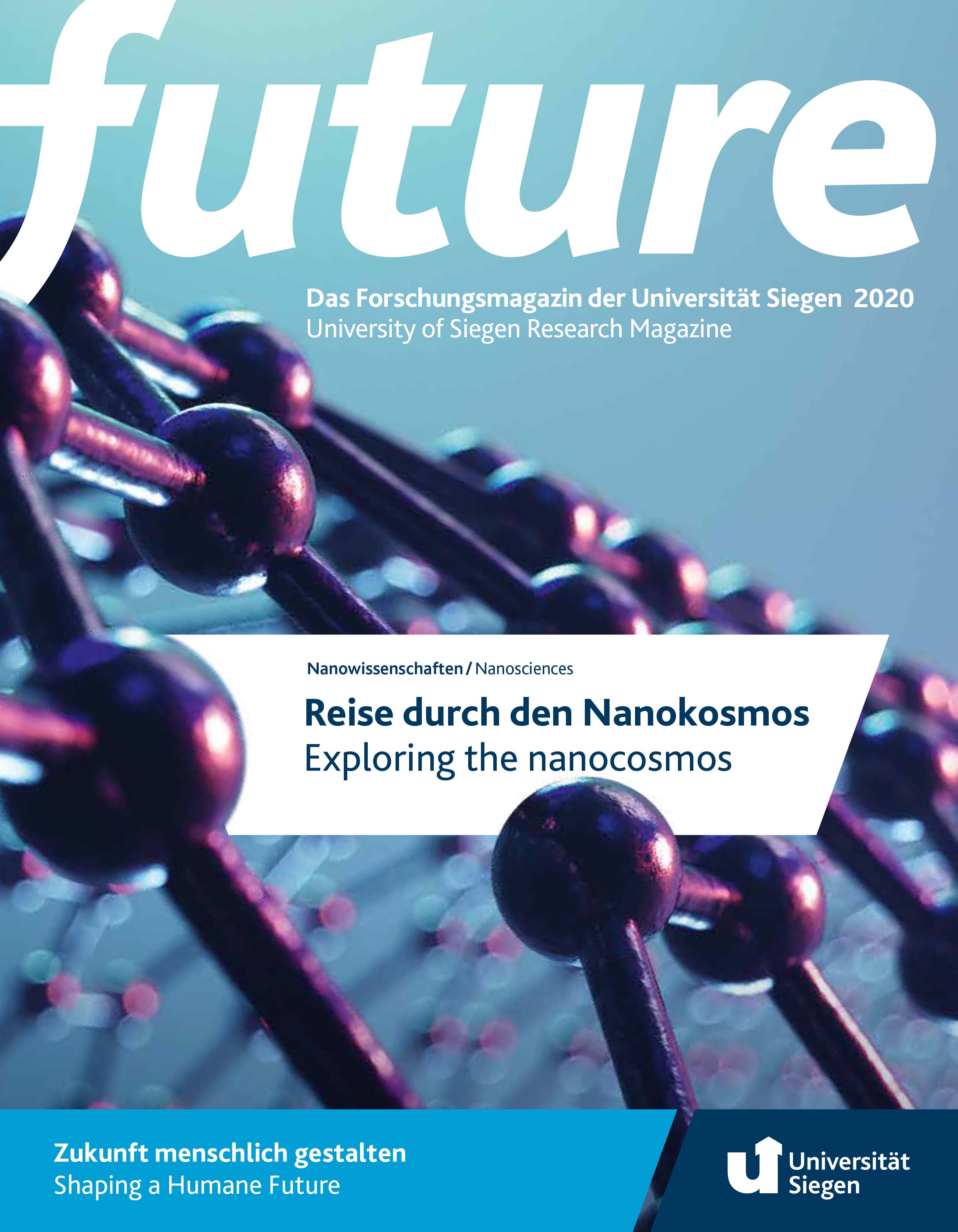 |
Issue 2020Main Topic: Exploring the nanocosmosHow harmful are nanoparticles from sun creams to aquatic organisms? Can DNA analyses improve cancer detection? And can artificial diamonds be developed into a super capacitor? - You can read all this and much more in the future issue 2020. Selection of topics:
» Read online
|
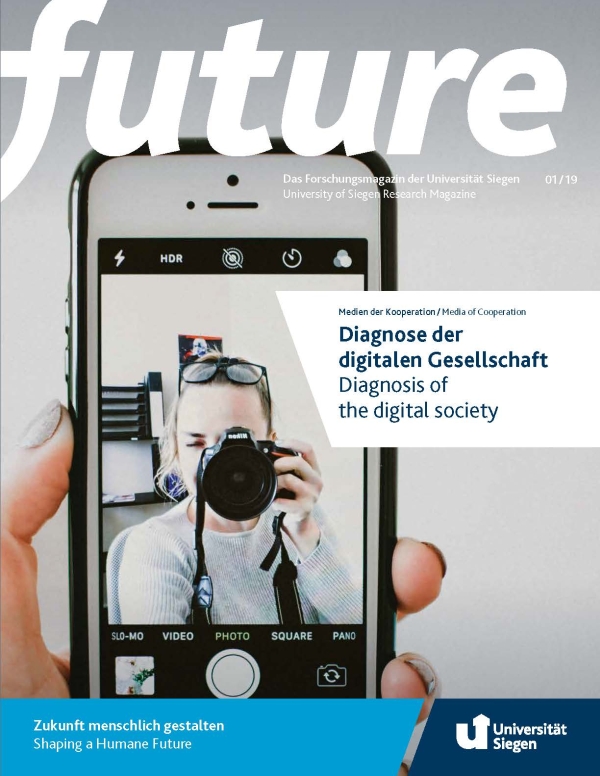 |
Issue 2019Main Topic: Media of CooperationDiagnosis of the digital society: How has our society changed through digitally networked media? Selection of topics:
» Read online
|
Basic data
Publication frequency: once every year since summer 2019
No. of copies: 5,000 (issues 2019, 2020); 4,000 (issues
2021-2023); 3,500 (issue 2024)
When printing the research magazine, we only use wood that
comes from responsible forestry. We print climate neutrally
and support important environmental projects. In 2023, we
supported the reforestation of mixed forests in Germany
and reforestation in the Amazon. In 2022 we donated to
the Freiburg city forest. In 2021, we supported
a mountain forest and climate project in the
Allgäu region (Germany). For the 2020 issue, we
donated money to the climate protection project at Virunga
National Park in the D.R. Congo to protect the habitat
of mountain gorrilas. For the 2019 edition, we financially
supported regional projects in the Harz Mountains, Germany.
All topics are discussed or
determined together with the Research and Young Scientific
Academics Commission, the Research Funding Unit and Prof.
Dr. Thomas Mannel, the Prorector for Research and Junior
Scientists. The main requirement for the decision is that
it is cutting-edge research that is
future-oriented.
